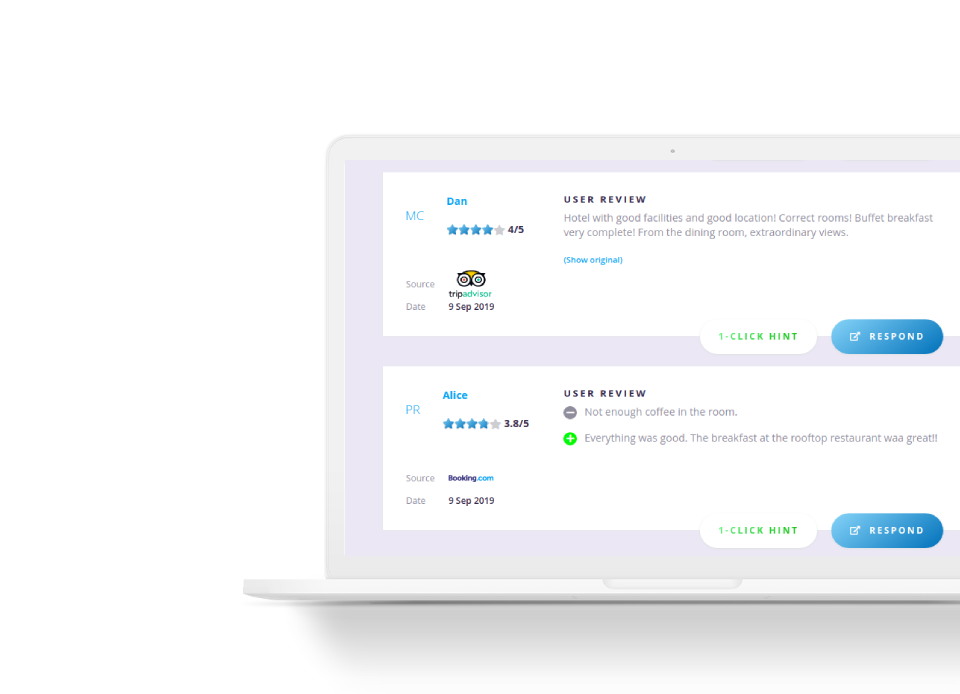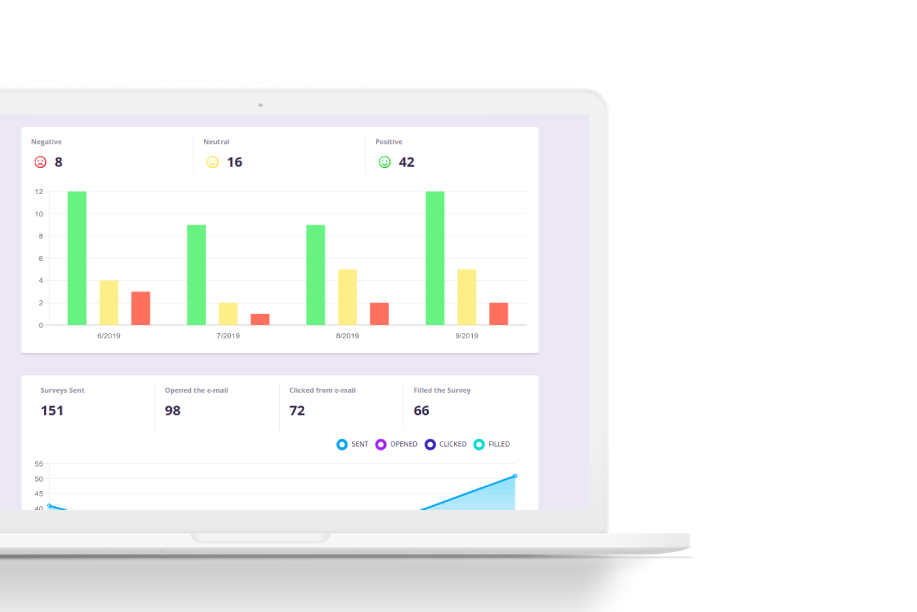مراقبة جميع التقييمات في مكان واحد والرد عليها تلقائيًا. وفر الوقت للتركيز على أهم شيء، وهو ضيوفك.

راقب جميع تقييماتك من أكثر من 50 منصة (Booking وTripAdvisor وGoogle) في لوحة تحكم واحدة سهلة الاستخدام.
باستخدام اقتراحات الاستجابة التلقائية لدينا، تستجيب الفنادق للمراجعات الإضافية بنسبة 50% عن ذي قبل.
راقب عن كثب نقاط القوة والضعف لدى منافسيك وابحث عن طرق للارتقاء في التصنيف عبر الإنترنت.
قم بمعالجة المواقف والرد على المراجعات السلبية بطريقة مرنة ودقيقة ورشيقة قبل أن تخرج عن نطاق السيطرة. يساعدك GuestFlip على الاستجابة بشكل أسرع من خلال تحديد المراجعات التي تحتاج إلى استجابة وتقديم اقتراحات تم إنشاؤها بواسطة الذكاء الاصطناعي.


لقد بدأنا باستخدام GuestFlip منذ بضعة أشهر ونحن راضون تمامًا. لا يقتصر الأمر على حصولنا على نظرة عامة كاملة على مراجعاتنا في لمحة سريعة فحسب، بل يمكننا أيضًا الرد عليها بسرعة كبيرة من خلال الردود التلقائية والشخصية، مما يساعدنا على توفير الوقت الثمين.
Manos Konstantinou, Owner – InnAthens

GUESTFLIP 2025 COPYRIGHT. ALL RIGHTS RESERVED
